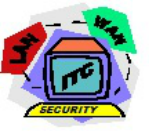|
CDC alerts. Cybercriminals have sent phishing emails designed to look like they’re from the U.S. Centers for Disease Control. The email might falsely claim to link to a list of coronavirus cases in your area. “You are immediately advised to go through the cases above for safety hazard,” the text of one phishing email reads.
Health advice emails. Phishers have sent emails that offer purported medical advice to help protect you against the coronavirus. The emails might claim to be from medical experts near Wuhan, China, where the coronavirus outbreak began. “This little measure can save you,” one phishing email says. “Use the link below to download Safety Measures.” How do I help avoid scammers and fake ads?Scammers have posted ads that claim to offer treatment or cures for the coronavirus. The ads often try to create a sense of urgency — for instance, “Buy now, limited supply.” At least two bad things could happen if you respond to the ads. One, you might click on an ad and download malware onto your device. Two, you might buy the product and receive something useless, or nothing at all. Meanwhile, you may have shared personal information such as your name, address, and credit card number. Bottom line? It’s smart to avoid any ads seeking to capitalize on the coronavirus. Tips for recognizing and trying to avoid phishing emailsHere are some ways to recognize and avoid coronavirus-themed phishing emails. Phishing email messages usually try to lure you into clicking on a link or providing personal information that can be used to commit fraud or identity theft. Here’s some tips to avoid getting tricked.
Excerpts taken from Norton Lifelock article here - Read Full Article
0 Comments
Your comment will be posted after it is approved.
Leave a Reply. |
AuthorSr. Consultant - IndyTek Consulting Archives
January 2024
Categories |

 RSS Feed
RSS Feed
